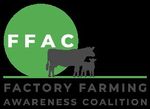The Rt Hon. Alok Sharma MP House of Commons London - SW1A 0AA
←
→
Page content transcription
If your browser does not render page correctly, please read the page content below
The Rt Hon. Alok Sharma MP
House of Commons
London
SW1A 0AA
Copied to:
Rt Hon Boris Johnson MP, Prime Minister and Peter Hill, CEO COP26
Monday, August 23, 2021
Dear Rt. Hon. Alok Sharma MP, President of COP26,
We write to request your assistance in ensuring that animal agriculture will be included among the priority areas on
the agenda at the United Nations Climate Change COP26 in November. Animal agriculture is one of the most
significant contributors to climate change, representing 14.5% to 16.5% of anthropogenic greenhouse gas
emissions globally, which is on par with all forms of transportation combined. 1,2 This formal acknowledgement will
help to encourage world leaders to explicitly recognize a shared responsibility for mitigating the ongoing and
growing impacts of industrialised animal agriculture on the planet.
We collectively request that the following three topics are included in formal COP26 discussions:
1. Shifting subsidies and financial incentives from industrialized livestock production to more sustainable
plant-based agriculture, thus supporting a just transition in the agriculture sector.
2. Incentivising investment in the development of alternatives to animal-based foods and a supportive
environment for innovation within the protein landscape.
3. Amending government procurement priorities to lower GHG pathways within the public sector by
decreasing animal-based food procurement and increasing procurement of plant-based foods.
Globally, the animal agriculture industry breeds, raises, and slaughters more than 88 billion land animals per year. A
recent study in Science found that even if fossil fuel emissions were immediately halted, current trends in global
food systems would make it impossible to limit warming to the 1.5°C target and make it difficult to realize the 2°C
target. 3
The science is clear that reducing global livestock numbers could contribute up to one-fifth of the mitigation
needed to meet the Paris below 2°C target. 4 The Intergovernmental Panel on Climate Change (IPCC) found that
“(b)alanced diets, featuring plant-based foods, such as those based on coarse grains, legumes, fruits and
vegetables, nuts and seeds, and animal-sourced food produced in resilient, sustainable and low-GHG emission
systems, present major opportunities for adaptation and mitigation while generating significant co-benefits in
terms of human health (high confidence). By 2050, dietary changes could free several million km2 (medium
1
Gerber, P.J., Steinfeld, H., Henderson, B., Mottet, A., Opio, C., Dijkman, J., Falcucci, A. & Tempio, G. (2013). Tackling climate change through
livestock – A global assessment of emissions and mitigation opportunities. Food and Agriculture Organization of the United Nations (FAO),
Rome.
2
Food and Agriculture Organization of the United Nations (FAO). (2017). Global Livestock Environmental Assessment Model (GLEAM). Rome
(Italy): Food and Agriculture Organization of the United Nations (FAO). www.fao.org/gleam/en/
3
Clark, M. A. et al. Global food system emissions could preclude achieving the 1.5° and 2°C climate change targets. Science 370, 705–708 (2020).
4
Griscom, B. et al. (2017) Natural climate solutions. Proceedings of the National Academy of Sciences, 114 (44), 11645-11650.confidence) of land and provide a technical mitigation potential of 0.7 to 8.0 GtCO2eq yr-1, relative to business-as- usual projections (high confidence).” 5 Direct emissions of CO2 may not be the primary concern from animal agriculture, in fact results from the FAO indicate that methane (CH4) is responsible for about half of the total emissions from livestock (CO2-equivalent). 6 To help keep warming under 1.5°C, an IPCC special report calls for “deep reductions in emissions of non-CO2 forcers, particularly methane” mentioning the need for “deep reductions in agricultural emissions” among other mitigation pathways. 7 Further, a recently published report finds that livestock accounts for nearly a third of the total anthropogenic methane emissions and goes on to call for three behavioral changes to help reduce those emissions: “reducing food waste and loss, improving livestock management, and the adoption of healthy diets (vegetarian or with a lower meat and dairy content).” 8 With one of the five main themes of this year’s COP focusing on nature-based solutions to the twin threats of climate change and biodiversity loss, and with the Presidency’s promise “to build on the foundations laid at the 2019 UN Climate Action Summit, working with governments, businesses and civic organisations to raise ambition on tackling the drivers of climate change and biodiversity loss, mobilise financing to protect and restore critical ecosystems, and kick-start a just rural transition towards sustainable land use to benefit people, climate and nature”. In order to deliver on this ambition COP26 must fully acknowledge the impact of animal agriculture as a major driver of climate and other environmental threats to our planet. The farm animal production sector is the single largest anthropogenic user of land, with meat, egg, dairy and aquaculture production systems using approximately 83% of the world’s farmland while providing just 37% of the world’s protein and 18% of calories. 9 Animal agriculture is a major driver of deforestation, species extinction, land degradation, exhaustion of water resources and pollution. 10 In fact, the recent Chatham House report, “Food System Impacts on Biodiversity Loss”, identified our global food system as the primary driver of biodiversity loss, with agriculture alone being the identified threat to 24,000 of the 28,000 (86%) species at risk of extinction. The report called for an urgent reform of food systems, including a shift in global dietary patterns towards more plant- centric diets. 11 Addressing these urgent areas in the UNFCCC COP26 meeting would help propel governments around the world to take action and would provide world leaders with another high impact option to add to their toolbox for tackling 5 IPCC, 2019: Summary for Policymakers. In: Climate Change and Land: an IPCC special report on climate change, desertification, land degradation, sustainable land management, food security, and greenhouse gas fluxes in terrestrial ecosystems [P.R. Shukla, J. Skea, E. Calvo Buendia, V. Masson-Delmotte, H.-O. Pörtner, D. C. Roberts, P. Zhai, R. Slade, S. Connors, R. van Diemen, M. Ferrat, E. Haughey, S. Luz, S. Neogi, M. Pathak, J. Petzold, J. Portugal Pereira, P. Vyas, E. Huntley, K. Kissick, M. Belkacemi, J. Malley, (eds.)]. In press. https://www.ipcc.ch/site/assets/uploads/sites/4/2020/02/SPM_Updated-Jan20.pdf 6 Food and Agriculture Organization of the United Nations (FAO). (2017). Global Livestock Environmental Assessment Model (GLEAM). Rome (Italy): Food and Agriculture Organization of the United Nations (FAO). www.fao.org/gleam/en/ 7 IPCC, 2018: Global Warming of 1.5°C. An IPCC Special Report on the impacts of global warming of 1.5°C above pre-industrial levels and related global greenhouse gas emission pathways, in the context of strengthening the global response to the threat of climate change, sustainable development, and efforts to eradicate poverty [Masson-Delmotte, V., P. Zhai, H.-O. Pörtner, D. Roberts, J. Skea, P.R. Shukla, A. Pirani, W. Moufouma-Okia, C. Péan, R. Pidcock, S. Connors, J.B.R. Matthews, Y. Chen, X. Zhou, M.I. Gomis, E. Lonnoy, T. Maycock, M. Tignor, and T. Waterfield (eds.)]. https://www.ipcc.ch/sr15/ 8 United Nations Environment Programme and Climate and Clean Air Coalition (2021). Global Methane Assessment: Benefits and Costs of Mitigating Methane Emissions. Nairobi: United Nations Environment Programme. https://wedocs.unep.org/bitstream/handle/20.500.11822/35913/GMA.pdf 9 Poore J, Nemecek T. Reducing food's environmental impacts through producers and consumers. Science. 2018 Jun 1;360(6392):987-992. doi: 10.1126/science.aaq0216. Erratum in: Science. 2019 Feb 22;363(6429): PMID: 29853680. 10 Steinfeld, H., Food and Agriculture Organization of the United Nations., & Livestock, Environment and Development (Firm). (2006). Livestock's long shadow: Environmental issues and options. Rome: Food and Agriculture Organization of the United Nations. 11 Benton, T., Bieg, C., Harwatt, H., Pudasaini, R., Wellesley, L. Food system impacts on biodiversity loss: Three levers for food system transformation in support of nature. London, UK: The Royal Institute of International Affairs, Chatham House; 2021. Available from: https://www.chathamhouse.org/sites/default/files/2021- 02/2021-02-03-food-system-biodiversity-loss-benton-et-al 0.pdf
climate change. Working with farmers to support and catalyse a shift towards more plant-centric food production and consumption is a proactive step that must be taken to future-proof global food and agricultural industries. We call on the UNFCCC to formally and publicly recognise the role of animal agriculture as one of the largest contributors of climate change and to open a greater space for dialogue. COP26 is occurring at a defining moment for our future, and this is our chance to focus on constructive efforts to reduce deadly emissions from intensive animal agriculture and safeguard our planet for generations to come. Yours Sincerely,
You can also read


























































